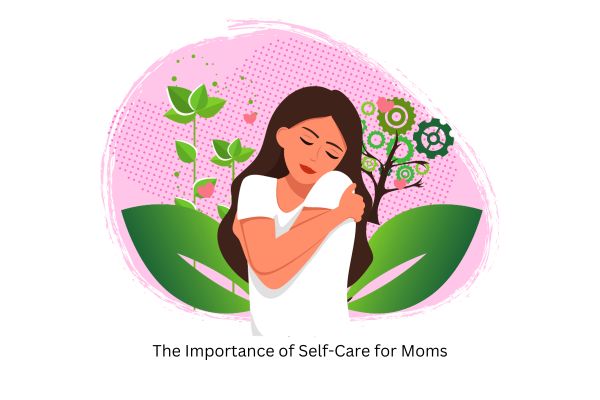Hey there! Are you a mom who always puts her family first and forgets to take care of herself? Well, it’s time to change that! Let’s talk about the importance of self-care for moms and why nurturing the nurturer is crucial for your well-being and your family’s happiness. Are you ready?
Mothers play a huge role in the lives of their children. They give their time, energy, and love to ensure their children’s well-being. However, self-care often takes a backseat, which shouldn’t be the case. Mothers should take care of themselves too. Here, we’ll explore why self-care is crucial for moms. We’ll discuss the benefits to physical, emotional, and mental health, and provide practical tips on how to make self-care a part of your life.
The Constant Juggle of Motherhood
Being a mother is a full-time job, often more than a 24/7 commitment. From sleepless nights with newborns to the endless responsibilities that come with raising children, moms are known for their incredible strength and resilience. However, amidst the chaos and demands of motherhood, many mothers neglect their well-being, putting their health and happiness at risk.
The Importance of Self-Care
Self-care is the practice of intentionally taking time for oneself to maintain and improve physical, emotional, and mental health. While it may sound like a luxury, self-care is a fundamental aspect of well-being, especially for mothers. Here’s why it matters:
1. Physical Health
Physical health is the cornerstone of self-care. As a mother, your body undergoes tremendous changes during pregnancy and childbirth. It’s essential to prioritize your physical well-being by:
- Getting Adequate Rest: Sleep is a precious commodity for mothers. Lack of sleep can lead to exhaustion, weakened immunity, and increased stress. Finding time to rest, even if it’s in small increments, is vital.
- Eating Nutrient-Rich Food: Proper nutrition is essential for energy and overall health. Make time for balanced meals and stay hydrated. Avoid skipping meals, as it can lead to irritability and fatigue.
- Exercise: Regular physical activity can boost your mood and energy levels. Incorporate exercise into your daily routine, even if it’s a short walk or home workout.
- Regular Check-Ups: Don’t neglect your health check-ups. Regular visits to your healthcare provider ensure that you stay in optimal physical condition.
2. Emotional Well-Being
Motherhood can be emotionally taxing, and self-care plays a crucial role in maintaining emotional balance:
- Me-Time: Taking time for yourself allows you to recharge emotionally. Whether it’s reading a book, enjoying a hobby, or simply having a quiet moment, me-time is invaluable.
- Expressing Emotions: Motherhood brings a range of emotions, including joy, frustration, and anxiety. Don’t suppress these feelings; instead, share them with a trusted friend or seek professional help if needed.
- Boundaries: Set boundaries to protect your emotional well-being. It’s okay to say no and prioritize your needs.
- Support System: Lean on your support system, whether it’s your partner, family, or friends. You don’t have to do it all alone.
3. Mental Health
The mental well-being of a mother has a significant impact on her overall health and the well-being of her family:
- Stress Management: Chronic stress can lead to physical and mental health issues. Self-care practices, like meditation and deep breathing, can help manage stress.
- Mental Stimulation: Engage your mind with activities that stimulate your mental faculties. Read, solve puzzles, or learn something new to keep your brain active and healthy.
- Therapy and Counseling: If you’re struggling with your mental health, seeking therapy or counseling is a proactive step toward self-care. It’s not a sign of weakness but a path to healing and growth.
Practical Self-Care Tips for Moms

Now that we understand the importance of self-care for moms, let’s explore practical ways to incorporate it into your daily life:
1. Prioritize Sleep
Sleep is a cornerstone of physical and emotional well-being. Try to establish a sleep routine, even if it means napping when your baby naps. Enlist the help of a partner or family member to get some uninterrupted rest.
2. Delegate Responsibilities
You don’t have to do everything alone. Delegate household responsibilities to your partner, children, or a trusted caregiver. Share the load to free up time for self-care.
3. Schedule Me-Time
Set aside specific time for yourself. It can be a daily or weekly ritual, but make it non-negotiable. Whether it’s a bubble bath, a quiet cup of tea, or reading a chapter of your favorite book, this time is essential.
4. Stay Connected
Maintain connections with your support network. Social interactions with friends and family can provide emotional relief and a sense of community.
5. Exercise Regularly
Exercise has a profound impact on mood and energy levels. Incorporate physical activity into your daily routine. It can be a solo workout or a fun family activity.
6. Seek Professional Help
If you’re struggling with emotional or mental health issues, don’t hesitate to seek professional help. Therapists, counselors, and support groups are valuable resources for your well-being.
7. Practice Mindfulness and Relaxation Techniques
Mindfulness, meditation, and relaxation exercises can help you manage stress and stay mentally centered. These practices can be done in short increments, making them manageable for busy moms.
8. Say No Without Guilt
Setting boundaries is essential. Learn to say no when you need to without feeling guilty. It’s a sign of self-respect and a way to protect your well-being.
9. Accept Help and Support
Don’t be afraid to accept help from others. Whether it’s a meal brought by a friend or a family member watching your child, accept support when offered.
10. Keep Learning
Stimulate your mind by pursuing hobbies or educational activities that interest you. It can be a creative outlet or a chance to learn a new skill.
Final Words
Taking care of oneself is crucial for mothers. It’s not a luxury, but a necessity for physical, emotional, and mental well-being. By prioritizing self-care, you’re not only caring for yourself but also enhancing your ability to take care of your family. Keep in mind that a happy and healthy mother is better equipped to provide love and support to her children. Therefore, take the time to look after yourself, because you deserve it, and your family deserves the best version of you.





